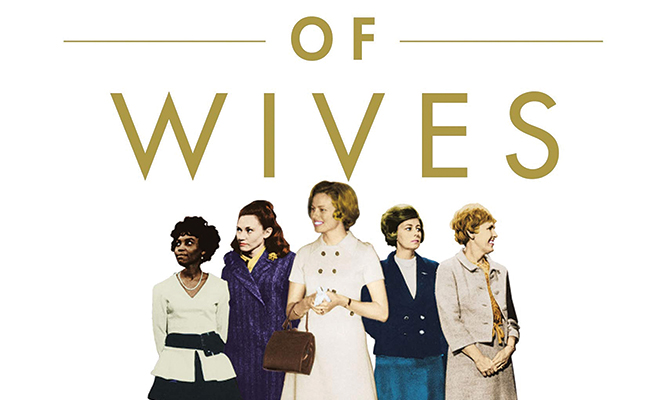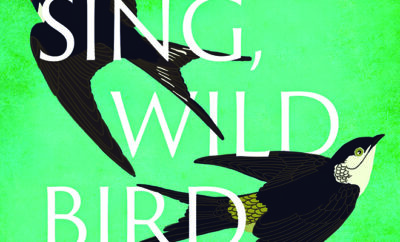
The League of Wives by Heath Hardage Lee and Hot Young Widows Club by Nora McInerny
To love, honor, and cherish. That’s what you vowed, ’til death do you part. They’re promises you’ll keep forever, especially, as in The League of Wives by Heath Hardage Lee, when one of you fights on the other’s behalf.
When a woman married a military man in the 1960s, she quickly learned that her life would never be the same. There was, first, a book she received to help her learn the rules she’d be expected to follow. Says Lee, “a pilot needed the right wife” if he wanted a career in the military; her actions in dress and public decorum impacted his chances for promotion, and her social standing “mirrored her husband’s rank.”
By this reckoning, Sybil Stockdale was the highest-ranking wife at her husband’s naval base in California in 1964. Highly esteemed by other Navy wives, she was married to Commander James Stockdale and “had grown proficient at the military game.” That familiarity helped her in months to come.
In September 1965, Jim Stockdale was shot down over the Gulf of Tonkin and captured. He wasn’t the first U.S. pilot to be taken as prisoner of war, and Sybil wasn’t the first wife of a Vietnam POW, but her rank conferred leadership and, as the war continued, she reached out to other POW wives in what became a “reluctant sorority.” By late 1966, those wives began to realize that “they were low priority on the Johnson administration agenda.” Johnson wouldn’t meet with them; “the State Department all but ignored” them, even as their numbers grew. They were told that speaking out could jeopardize their husbands’ survival. They began to think that government officials wished they’d go away. The one exception: the liaison assigned to them, a man who later was lauded for his help. He seemed to understand that there was one way for the women to get their husbands home, and he told them: “Organize.” So they did.
You know how this story ends, but getting-there’s the appeal. Lee writes a real-life account of politics, espionage and secrets, inside a tale of a changing world and an unpopular war, inside a story of one small corner of the history of women’s rights. That adds up to a tale that’s just-right-told, especially if you’re a politico, history buff, veteran, military wife or feminist. For you, The League of Wives could become a cherished story.
The Hot Young Widows Club by Nora McInerny
Sometimes, life stinks. Bad things happen to great people but truly horrible things happen to you, like losing a loved one, and that’s indescribable. Your emotions feel like shuffled cards: you’re sad, angry, exhausted and tired of dealing with it all. What do you do next? Take a deep breath and read The Hot Young Widows Club by Nora McInerny.
McInerny knows grief. She shouldn’t have to, but she does because her husband died some time ago at 35, just before her father died, just before she miscarried what would have been her second child. And if that sounds like a lot, she says not to compare her situation to yours. Loss isn’t a competition because “who could possibly win?”
If this is your first big loss, welcome to a club you “had no intention of joining.” What you may not realize yet is that you’re in good company, although dealing with your loss is uniquely yours and there are no rules or “right” ways to grieve, no expiration date, and there are no shoulds. Although, maybe you should think about finding someone who’s been through this walk of widowhood, too, so you can scream into pillows together. McInerny recommends a “support group” of one or a dozen but find them on your own timeframe and do it in your own way. Remember that “you are not a machine, and grief is not a program you can run.” Understand that people can be awkward, they can be dumb, and that not every friendship will last beyond your grief. Embrace these words: “Why do you ask?” when faced with nosiness. And finally, remember that “Time can change you, and it will. But it can’t change [the departed], and it won’t.”
This is unlike any coping-with-loss book you’ve ever seen; first, because McInerny ignores euphemisms. There’s no candy-coating death and no hiding what happened, so she uses the “D” word with honesty and gusto. She also uses humor, although it’s not the ROFL kind; instead, it’s humor of the sort that survivors use at the end of a crisis. And that, as she shows readers, is what you’ll be: a survivor, even though you’ll still cry sometimes. This is not a book for raw widows or widowers, but they’ll want it eventually; it’s a little irreverent, but it’s just what they’ll need, in time. Life sometimes stinks, but The Hot Young Widows Club absolutely does not. ■







